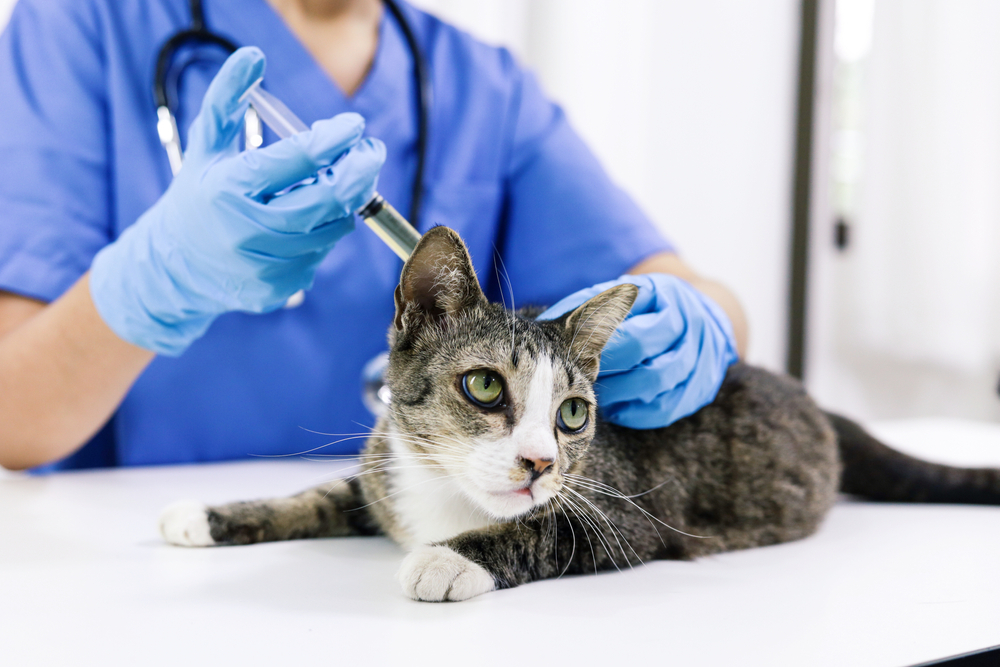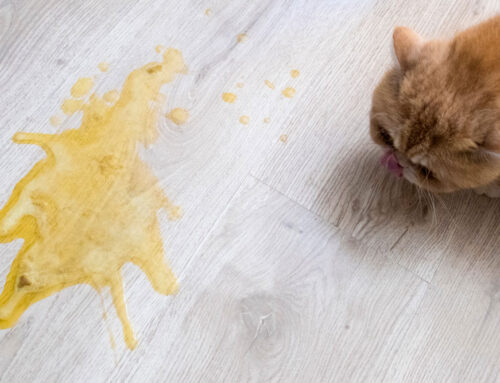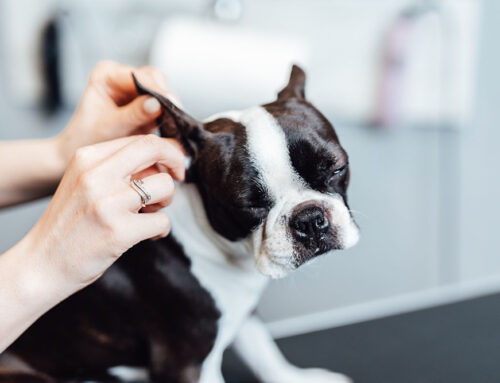If your cat is thinking outside of the box when it comes to urinating, you likely feel frustrated and confused. This problem can appear at any time in male or female cats of any age, including cats with a previously perfect record of litter box use. So why do some good cats go “bad?”
Feline inappropriate urination can have many medical and non-medical causes, so having your cat evaluated at LaGrange Veterinary Hospital as soon as possible is important. The sooner you address your cat’s house soiling, the less likely they will form a long-term habit. Let’s take a look at five common causes for inappropriate urination in cats.
#1: Your cat has a medical condition
Your cat may have an increased urgency to urinate due to an inflamed urinary tract, bacterial infection, or a kidney disorder causing increased thirst and urination. If your cat cannot reach the litter box in time, they will relieve themselves in an alternative location. Painful urination can also form a negative litter box association, as cats remember where they were when the pain occurred, and will seek to avoid future discomfort by urinating elsewhere. Common medical reasons for house soiling include:
- Feline lower urinary tract disease
- Urinary tract infection
- Kidney infection
- Kidney or bladder stones
If your cat is crying out, frequently straining to urinate, and has a tense abdomen, they may have a urinary obstruction. Cats with this condition require life-saving emergency treatment, so contact us immediately.
#2: Your cat does not like the litter box
Cats are fastidious, and prefer their litter box cleaned consistently. Some cats are turned off by the smallest amount of debris in their box, and will refuse to eliminate there until the mess is removed. Other cats may have more specific complaints about their box arrangements. Common errors in litter box set up include:
- Incorrect size — The cat should be able to stand comfortably and turn around.
- Incorrect style — Most cats prefer an open litter box, while shy cats appreciate a covered one. Note that covered boxes trap odors, which may deter shy cats, too, if not cleaned regularly.
- Poor location — Noisy, high-traffic areas can discourage cats from using the box. Cats do not like to eliminate near their food source, so keep food and water in a separate area.
- Wrong substrate — Adult cats prefer soft, clumping, fragrance free litters about one to two inches deep. For kittens, use a shallow pan of non-clumping litter to prevent ingestion.
#3: Your cat is being bullied
Resource guarding and bullying are common in a multi-cat home. Dominant cats may block a subordinate cat’s access to the litter box, causing emotional and physiological stress. That forces the cat to seek out secluded areas where they can eliminate without feeling threatened. If your home has a limited number of litter boxes, or access to all boxes can be controlled from a central area (i.e., a hallway), more submissive cats have no option but to urinate or defecate inappropriately.
#4: Your cat has arthritis pain
Degenerative joint disease (i.e., arthritis) and spondylosis (i.e., spinal degeneration) are common in senior cats, and their likelihood increases with age—more than 90 percent of cats older than 12 have one or both debilitating conditions. These aching cats may experience pain when stepping in and out of a high-sided litter box, associate the litter box with pain, and avoid the pain by eliminating on a level surface. Your senior cat may also avoid a litter box that they must use stairs to reach.
#5: Your cat is feeling stressed by a perceived threat
While spraying and marking are messy and inconvenient behaviors, they are natural feline responses. Spraying behavior is most common in unaltered male and female cats, although any cat can spray if prompted by stress or a perceived threat. A sudden change in the cat’s home territory, such as new furniture, stray cats outside, or a shift in the family dynamic, may cause the cat to spray out of confusion or anxiety.
Unlike urination, cats spray while standing, and can release small amounts of urine on a vertical, and occasionally horizontal, surface or object. Because house soiling and spraying have different causes and treatment, discerning which behavior your cat is performing is important.
How to address your cat’s inappropriate urination

Bring your cat to LaGrange Veterinary Hospital for an examination and urinalysis when you first notice house soiling. Attempting to correct your cat’s behavior without veterinary guidance is likely to cause further frustration, and allow your cat’s urination to become a permanent habit. If your cat’s behavior is because of a medical condition, treatment as a behavioral problem will prolong their pain, and worsen their condition.
If your cat receives a clean bill of health, our veterinarian will ask additional questions about your cat’s behavior, to help determine the cause. Once we isolate the source of your cat’s frustration or stress, we can develop a training plan to resolve the problem, and get your cat “thinking inside the box” once again.
Call the LaGrange Veterinary Hospital team to schedule your cat’s appointment to examine why they are urinating inappropriately, or for more information about feline urinary health.








Leave A Comment